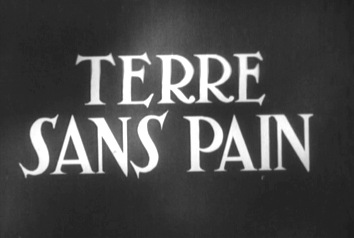![]()
![]()

![]()
![]()
|
|
Bu˝uel's documentary called Las Hurdes (or Land Without Bread) is about the Hurdanos, an inbred people who live in mid-western Spain (close to the Portuguese border). They live not only in squalor but their ridiculous suspicions can cause them starvation. They refuse to eat any of the other farm animals except disease-invested swine.
Bu˝uel films this 1932, 30 minute documentary in a very simple way, allowing the images to speak for themselves with unflinching cold narrative and classical music as an adjunct. |
|
|
Las Hurdes by Luis Bu˝uel Review of the film and DVD by Gary W. Tooze |
||
|
Although Bu˝uel was making a political statement (actually blaming Franco for the way these people were treated), the images that are showed in the film are so absurd they become surreal (Bu˝uel = surreal). The original voice-over narrative is mono-tone and if my friends Spanish is accurate (I have no reason to believe it is not, as he was born and lived most of his life in Barcelona!) then what he is saying is laughable... Why? Because it is displayed in such a non-cloying sense. |
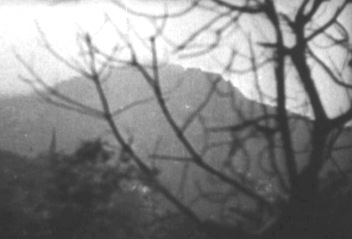 |
|
|
Bu˝uel used a very practical documentary styling to convey the true horror of these people... he does not request your sympathy... it is instead ripped from you by the images. It is shown as accurate, not melodramatic. In this sense I view it as "objective". The subject matter coveys the shock of "Land Without Bread", not the manner it is filmed. It would have been too easy to make this wrought with weeping women, funerals, death... but instead the everyday life of the Hurdanos is documentary worthy enough. |
 |
|
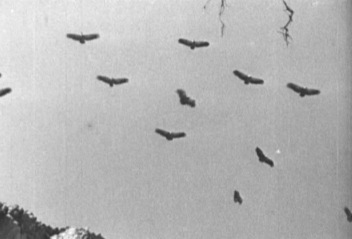 |
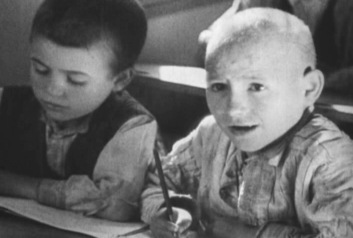 |
|
|
No one will question that the images are horrible (snakes bite farmers, mountain goat falling to death, mule being stung by thousands of bees etc.) but looking a little deeper, it is the fact that the adder attacks are not fatal... but rather it is the salve that the villagers put on the wounds that cause them to get infected, and possibly kill them... is this a stab at their lack of education? the overall problem? indicating that this suffering can be prevented? or just showing the truth... |
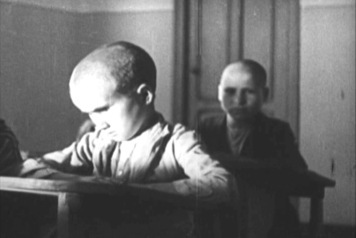 |
|
|
As an aside, Las Hurdes reminded me very much of Alain Resnais' "Night and Fog". Long slow tracking shots ľ probably done for budget rather than effect, cold French voice for narration, quasi-dark classical music, landscape scenes, and poverty stricken children, often looking malnourished and because they are obviously inbred (some with the shaven head look) not appearing dissimilar to concentration camp prisoners. I couldn't fully understand the dialogue (no subtitles except my Spanish interpreter), yet I had trouble turning away. Not unlike other Bu˝uel films, it is the post reflection and reading that allow me to fully appreciate the depth of what the man was attempting to say... This is a strangely compelling film, one that fits perfectly on the "Los Olvidados" DVD. As it is only 30 minutes long and no English subtitles, I have trouble giving it a rating but do recommend it to all. I was interested at first and moved towards fascination as it progressed. |
||
|
FILM and DVD Details |
||
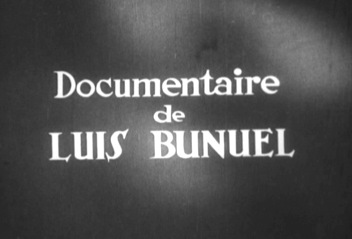 |
Although I recommend this DVD, I also feel the corresponding one from DVDGO.com with The Criminal Life of Archibald de la Cruz and "El" is the better of the two. This would be worthy if it only had Los Olvidados ( The Young and the Damned ), but the addition of the infrequently seen Las Hurdes makes it a must have for Bu˝uel fans. The images are very tattered as you can see from the above screen captures and the sound leaves much to be desired, but I doubt there is a better print of this in existence. | |
|
|
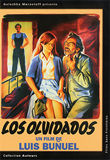
Audio Features: Mono Additional Information: |
|
![]()
![]()

![]()
![]()
